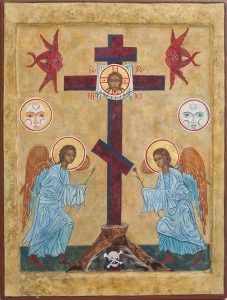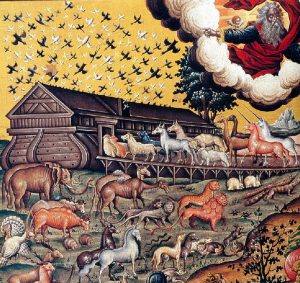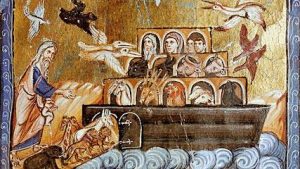Christ is among us!
VIGIL LIGHT: This week vigil light is offered by Halya Lodynsky for God’s blessing and health for Stefan Yurchak.
SOROKOUSTY (All Souls): will be celebrated on every TODAY. The next All Soul’s Remembrance will March 11 and May 19. Please take a book found in the entrance of the church, fill it out, place it in envelope and drop it in the collection basket. Let us remember all our loved ones who have gone to their heavenly reward. Eternal Memory!
PYSANKA — Ukrainian Easter Egg Workshop will be held TODAY in the church hall from 1:00 to 3:30 p.m. It is open to youth and adults, but children must be accompanied by an adult. Bring your children and grandchildren to learn their beautiful heritage. Free to parish youth and Ridna Shkola students. Sponsored by UNWLA branch 108, the Heritage Center and the CT Ukrainian-American Historical Society.
PARISH MISSION: Mission in our parish will be on Sunday, March 18th and March 25th. Father Albert Forlano will be giving Mission in our parish. Father Albert is going to be in confessional half an hour before AND during both Divine Liturgies. For confession in Ukrainian language Father Stepan Yanovski will be in confessional each Sunday during Lent.
Father Bohdan Prach, Rector of the Ukrainian Catholic University, will be giving a Ukrainian-language presentation of his new book on April 20th in Stamford and on April 21st in New York. Father Prach will give a book presentation on The Clergy of the Peremyshl Eparchy and the Apostolic Administration of Lemkivshchyna.
Christ Our Pascha, the Catechism of the Ukrainian Catholic Church, is now available online in English, http://catechism.royaldoors.net
By the threefold discipline of fasting, prayer and almsgiving the Church keeps the Great Fast/Lent from Monday, February 12, after the Cheesefare Sunday to the day before Easter, Holy Saturday, March 31. The following regulations apply, in general to all Ukrainian Catholics of the Stamford Eparchy between ages 21 to 60: Abstinence from meat and dairy products on the first day of the Great Fast, February 12, and Good Friday, March 30. The following regulations apply, in general, to all Ukrainians Catholics of the Stamford Eparchy between ages 14 to 60: Abstinence from meat is to be observed on all Fridays of the Great Fast. Abstinence from meat is suggested and encouraged on all Wednesdays of the Great Fast. The following are exempt from abstinence: 1. The poor who live on alms; 2. The sick and the frail; 3. Convalescents who are returning to their strength; 4. Pregnant women, and women who are nursing their children; and 5. Persons who perform hard labor. Meat is to be understood as including not only the flesh, but also those parts of warm-blooded animals that cannot be rendered, i. e., melted down, e.g., the liver, lungs, blood, etc. meat gravy or soup made from meat is included in this prohibition. Dairy products are to be understood as comprising products derived from mammals and birds, but not regarded as meat, e. g., cheese, lard, butter, milk, eggs, etc. Eucharistic Fast: A fast of one hour from food(prior to service begging time) should be kept by those receiving the Eucharist at the evening celebration of the Divine Liturgy of the Presanctified Gifts, as well as, the Divine Liturgy of St John Chrysostom and St. Basil the Great.
 Allan Yursha, 82, of Wallingford, died peacefully at home March 4, 2018. He was the beloved husband of Mary Ann (Herceg) Yursha.
Allan Yursha, 82, of Wallingford, died peacefully at home March 4, 2018. He was the beloved husband of Mary Ann (Herceg) Yursha. The first half of the Great Fast tells us the stories of Adam and Eve and their children, and the flood of Noah. It is a story of the creation of a perfect world and how that has been marred by human sin. It tells of the end of paradise, “The Lord God therefore banished him from the garden of Eden, to till the ground from which he had been taken. He expelled the man, stationing the cherubim and the fiery revolving sword east of the garden of Eden, to guard the way to the tree of life” (Genesis 3:23-24).
The first half of the Great Fast tells us the stories of Adam and Eve and their children, and the flood of Noah. It is a story of the creation of a perfect world and how that has been marred by human sin. It tells of the end of paradise, “The Lord God therefore banished him from the garden of Eden, to till the ground from which he had been taken. He expelled the man, stationing the cherubim and the fiery revolving sword east of the garden of Eden, to guard the way to the tree of life” (Genesis 3:23-24). One the key parts of the Great Fast is attending to Baptism. Do we realize the import of Baptism and its roots?
One the key parts of the Great Fast is attending to Baptism. Do we realize the import of Baptism and its roots? During this week, at Vespers, we read the story of the flood and the salvation of the righteous man Noah and his family. At first, this might seem to be the dark side of God, and on Friday, we heard: “When the Lord saw how great the wickedness of human beings was on earth, and how every desire that their heart conceived was always nothing but evil, the Lord regretted making human beings on the earth, and his heart was grieved. So the Lord said: I will wipe out from the earth the human beings I have created, and not only the human beings, but also the animals and the crawling things and the birds of the air, for I regret that I made them.” The story of the flood may have some historical basis, as a great flood in the Mediterranean basin in pre-history, but the story is iconic. (Noah could not have brought all the animal species on the ark.) The story tells us that the “wages of sin is death” (Romans 6:23).
During this week, at Vespers, we read the story of the flood and the salvation of the righteous man Noah and his family. At first, this might seem to be the dark side of God, and on Friday, we heard: “When the Lord saw how great the wickedness of human beings was on earth, and how every desire that their heart conceived was always nothing but evil, the Lord regretted making human beings on the earth, and his heart was grieved. So the Lord said: I will wipe out from the earth the human beings I have created, and not only the human beings, but also the animals and the crawling things and the birds of the air, for I regret that I made them.” The story of the flood may have some historical basis, as a great flood in the Mediterranean basin in pre-history, but the story is iconic. (Noah could not have brought all the animal species on the ark.) The story tells us that the “wages of sin is death” (Romans 6:23).